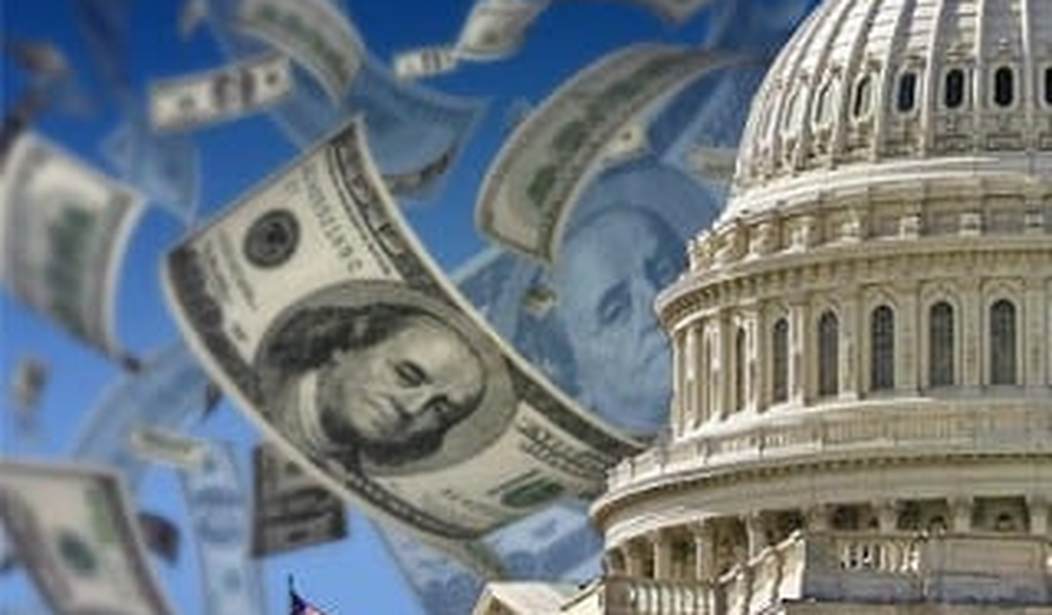WASHINGTON – Senate Republicans on Thursday killed a proposed constitutional amendment that would have opened the door to imposing political campaign funding limits on corporations and big donors.
The vote to consider the amendment, intended to overturn the U.S. Supreme Court’s decision in the Citizens United case, which essentially permits uncapped spending in a candidate’s behalf, was 54-42 – well short of the 60 votes needed to break a GOP filibuster.
The measure, sponsored by Sen. Tom Udall (D-N.M.), was doomed from the outset but it provided Democrats with an opportunity to charge that Republicans believe elections should belong to the highest bidder.
Senate Democratic Leader Harry Reid, of Nevada, maintained that Republicans are more concerned about favoring rich donors like the Koch brothers, who bankroll a number of conservative causes and candidates, than they are about giving average Americans a voice in their government.
“Senate Democrats want a government that works for all Americans – not just the richest few,” Reid said. “Today Senate Republicans clearly showed that they would rather sideline hard-working families in order to protect the Koch brothers and other radical interests that are working to fix our elections and buy our democracy.”
Regardless of the outcome, Reid said, the “national movement to reform our broken campaign system will continue.”
“Only in Washington is campaign finance reform a partisan issue,” he said. “A vast majority of Americans support undoing the damage of the Citizens United decision and enacting common sense campaign finance laws. The American people’s involvement in government should not be dependent on a check book.”
But Senate Republican Leader Mitch McConnell, of Kentucky, countered that Democrats are trying to use the amendment process to overturn free speech protections found in the First Amendment to silence their critics, adding that the amendment is “so extreme it could even open the door to government officials banning books and pamphlets that threaten or annoy them.”
“The aim here, just like with the IRS scandal, is to use the levers of power to shut down the voice of ‘we the people’ when ‘we the people’ don’t see things their way,” McConnell said. “The First Amendment is the only thing standing in the way.”
Sen. Ted Cruz (R-Texas), who joined McConnell in opposing the measure, said the amendment represented “the most massive intrusion on civil liberties and expansion of federal government power in modern times.”
Characterizing the amendment as “breathtaking,” Cruz said it would destroy the free speech protections enshrined in the First Amendment by limiting individuals, corporations, and citizen groups’ free speech while insulating politicians from criticism.
“The idea that elected politicians would seek to arrogate power to themselves to censor the citizens is an anathema to who we are as a country,” he said.
The amendment was offered to overturn not only the Citizens United ruling but years of precedent-setting decisions issued by the high court with regard to political spending. Supporters asserted the effort was necessary to reduce the flood of money that has entered into the nation’s electoral system while foes maintain it would usurp free speech rights.
Under Citizens United, decided in 2010, the Supreme Court held that the First Amendment prohibits government from restricting the independent political expenditures of a corporation, which the justices held have the same rights as an individual. The ruling also provided the same rights to labor unions and various other associations.
The amendment sought to allow federal and state governments to impose limits on campaign funding and spending for both candidates for office and outside groups. It also clarified that corporations aren’t people when it comes to campaign spending and included a provision to assure that press freedom would not be abridged under the proposal.
Miles Rapoport, president of Common Cause, a nonprofit group that favored the amendment, said it is actually the measure’s Republican foes who are “the real opponents of free speech, maintaining a system that lets a few wealthy Americans drown out the voices of millions of their fellow citizens.”
“Still, today’s vote is a critical and positive step on the long march toward sensible limits on political spending,” he said. “While we’re disappointed that the amendment didn’t get the 60 votes needed to move it to final passage in the Senate, we’re pleased that a majority of senators are now on record rejecting the Supreme Court’s assertion that money is speech. They have said that big ideas, not big money, should rule in the public square.”
Udall said he was encouraged by “more than half of the Senate voting on a constitutional amendment to make it clear that the American people have the right to regulate campaign finance.” But he added it was “unfortunate, but not unexpected, that Republicans would filibuster this measure and instead choose to support a broken system that prioritizes corporations and billionaires over regular voters.”
“Since the decision came down in 2010, our campaign finance system has been under siege, buried in billions of dollars from outside groups and super PACs,” he said. “We have been fighting from day one to rid our political system of the poison of Citizens United. Folks want their senators to work together to find real solutions, not be bogged down in the endless gridlock of the Citizens United era.”









Join the conversation as a VIP Member